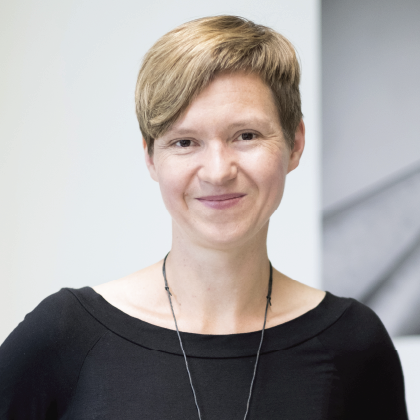Bernstein Network News. Find the latest news from our researchers regarding current research results, new research projects and initiatives as well as awards and prizes.
Susanne Schreiber reappointed to the German Ethics Council
Susanne Schreiber, Professor of Theoretical Neurophysiology at the Institute of Biology at Humboldt University and Chair of the Bernstein Network, has been appointed to the German Ethics Council for a second term of office.
Controlling prosthetic hands more precisely by the power of thought
Researchers at the German Primate Center – Leibniz Institute for Primate Research in Göttingen have developed a novel training protocol for brain-computer interfaces in a study with rhesus monkeys. The method enables precise control of prosthetic hands using signals from the brain alone. For the first time, researchers were able to show that the neural signals that control the different hand postures in the brain are primarily important for this control, and not, as previously assumed, signals that control the movement’s velocity. The results are essential for improving the fine control of neural hand prostheses, which could give paralyzed patients back some or all of their mobility (Neuron).
Roxana Zeraati receives Attempto Prize
This year's Attempto Prizes from the Tübingen Attempto Foundation go to Matthias Baumann for his work on the role of the superior colliculus brain region in the integration of visual information into motor signals to control rapid eye movements and to Roxana Zeraati for her publication on the processing of visual information in the brain on different time scales. The prizes are endowed with 5,000 euros each and were presented during the Dies Universitatis ceremony at the University of Tübingen on October 16, 2024 in the Alte Aula.
Bernstein-CorTec Award 2024
Prof. Kerstin Krieglstein, Rector of the University of Freiburg, awarded the Bernstein-CorTec Prize for Computational Neuroscience and Neurotechnology to two young researchers, Enya Paschen and Eric Klein, on the morning of 16 October.
The Power and Pitfalls of Learning Without Feedback
Imagine a child visiting a farm and seeing sheep and goats for the first time. Their parent points out which is what, helping the child learn to distinguish between the two. But what happens when the child would not have that guidance on a returning visit? Will they still be able to tell them apart? Neuroscientist Franziska Bröker is studying how both humans and machines learn without supervision — like a child on their own — and has uncovered a puzzle: unsupervised learning can either help or hinder progress, depending on certain conditions.
Charité researchers decode signals that precede voluntary movements
Slowed movement, trembling, stiff muscles: symptoms that are typical of Parkinson's disease. The loss of the neurotransmitter dopamine, also known as the happiness hormone, which contributes to the transmission of brain signals, is responsible. In the treatment of Parkinson's, it is replaced with medication, often accompanied by side effects. Using deep brain stimulation, electrical impulses can mimic the effect of dopamine, as researchers at Charité - Universitätsmedizin Berlin have now been able to show. In the scientific journal Brain, they describe the influence of the neurotransmitter on brain networks that transmit the intention of a movement. The aim is to further develop deep brain stimulation.
How fruit flies see clearly in changing light conditions
Mainz research team decodes neuronal circuits and mechanisms that enable stable vision of contrasts even in rapidly changing light conditions.
The Bernstein Network congratulates John Hopfield and Geoffrey Hinton on the Nobel Prize in Physics
This year’s two Nobel Laureates in Physics have used tools from physics to develop methods that are the foundation of today’s powerful machine learning. John Hopfield created an associative memory that can store and reconstruct images and other types of patterns in data. Geoffrey Hinton invented a method that can autonomously find properties in data, and so perform tasks such as identifying specific elements in pictures.
When Serotonin Dims the Light
A serotonin specific receptor can determine how important visual stimuli are perceived. This explains the effects of certain drugs and could help in understanding psychiatric diseases.
Understanding the Brain Thanks to Artificial Intelligence
Computer models of neural networks developed by humans can be arbitrarily far removed from reality. Nevertheless, they are a great help to researchers in planning and evaluating learning experiments.
















